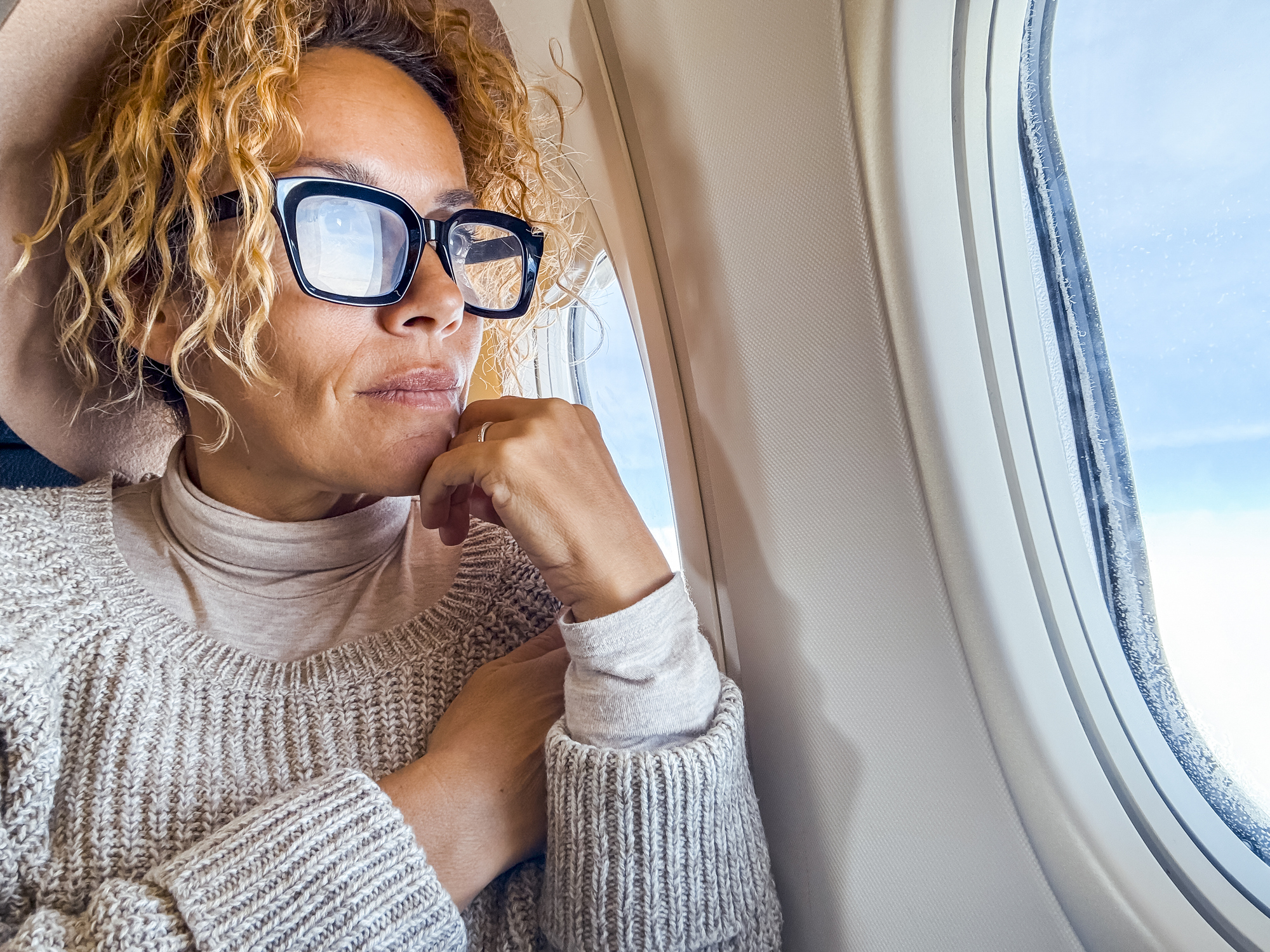Get Easy Health Digest™ in your inbox and don’t miss a thing when you subscribe today. Plus, get the free bonus report, Mother Nature’s Tips, Tricks and Remedies for Cholesterol, Blood Pressure & Blood Sugar as my way of saying welcome to the community!
Don’t let ‘fear of flying’ anxiety ruin your summer

I’m about to take my first flight in five years. Before the pandemic, I loved to fly. Now, I’m anticipating at least a little anxiety.
Being a “take-control” kind of person, I did some research, and am happy to report that there are many antidotes to the fear of flying (actually, taking control of your environment is one of them).
If you’re at all anxious about flying, I hope you’ll find at least a few of these to be useful if you’re planning a trip this summer.
Tackle your fear of flying a day early
Dial A Pilot. You may not be a TikTok fan, but there’s a channel on TikTok called “Dial A Pilot.” There are dozens of videos of an actual pilot explaining everything from how planes stay aloft to flying in bad weather, to turbulence. You can even have a 15-minute phone chat with a pilot about your specific fears.
One fearful flyer says, “they’ll show you what they’re doing in the cockpit, and what the noises are. That way if you’re sitting near the wing and you see part of it go down, you’re not like, ‘Wow, we’re going to lose our wing.’ It’s actually just part of what it’s supposed to do to keep you in the air.”
Turbli. Turbli is a website where you can check the expected turbulence for a flight you’re taking, up to 36 hours ahead of time. Type in your departure and arrival airports, and you’ll get a list of all flights going between the two, the expected turbulence, wind speed and chance of thunderstorms.
Things to do at the airport
This is where those intrusive, anxious thoughts can really kick in. This is called anticipatory anxiety: the anxiety that builds up before a flight and it can often be more intense than the flight itself. If you see it coming, use simple in-the-moment coping strategies like resonant breathing or journaling.
Once on board, establish some control over your environment. Bring your own pillow, blanket, and/or slippers. Wear a comforting eye mask. Pull down the window shade. During take-off, use earbuds to listen to music that’s familiar and calming.
Then, practice one of these two mindfulness techniques that can physiologically reduce your anxiety response.
Havening technique. That’s haven, as in creating a “safe haven” for yourself. You’re reinforcing the sense that you have control over your own body, says Dr. Christine Gibson, a family doctor and trauma therapist in Calgary, Canada.
“Havening” involves using one hand to gently brush your palms, shoulders, and face in an up-and-down motion. Start by lightly rubbing your right hand across the palm of your opposite hand, then gently stroking from your shoulder down to your elbow, and across your forehead and cheekbones. You might rub both arms at once, for example, which mimics hugging yourself.
Tapping. Tapping derives from traditional Chinese medicine. Dr. Gibson calls it “self-acupuncture.” No needles involved, though, so you can practice it before you board and during your flight if needed.
First you’ll need a “set-up statement,” something like, “Even though I’m anxious and my heart is pounding right now, I’m actually safe.” Repeat this to yourself as you use two fingers to tap on the acupressure points associated with stress relief: the top of your head, the spot between your eyebrows, the middle of your cheekbones, and the spot between your nose and lip. Repeat this as often as you need to.
More in-flight tips to tame fear of flying
Watch a funny video or movie. A couple of days before your flight, download a funny video onto your phone or tablet and start watching it as the plane takes off (in airplane mode). Studies have shown laughing is the quickest way to release natural opioids in your brain that can help regulate fear and anxiety.
Pack a weighted blanket in your carry-on. Weighted blankets have been shown to even ease anxiety in the dentist’s chair!
Supplements that reduce anxiety
Vitamin B6 has been shown to increase the body’s production of gamma-aminobutyric acid (GABA), a chemical that blocks impulses between the brain’s nerve cells and also promotes relaxation and sleep. In one study high levels of GABA in the hippocampus were best at suppressing unwanted thoughts.
L-theanine is an amino acid found in green and black tea that also boosts GABA. It’s available in supplement form which may be better to reduce caffeine.
Vitamin D is one deficiency you want to avoid if you occasionally have bouts of anxiety. Multiple studies have shown people with deficient amounts are prone to anxiety.
When using supplements to help with anxiety, you should start taking them regularly a few weeks before your trip to allow them to build up in your bloodstream.
Editor’s note: Did you know that when you take your body from acid to alkaline you can boost your energy, lose weight, soothe digestion, avoid illness and achieve wellness? Click here to discover The Alkaline Secret to Ultimate Vitality and revive your life today!
Sources:
Effective Ways to Handle Fear of Flying — The Getaway
6 Tricks to Try to Calm Your Fear of Flying — Time
https://turbli.com/ — Turbli
Havening Technique video — TikTok














